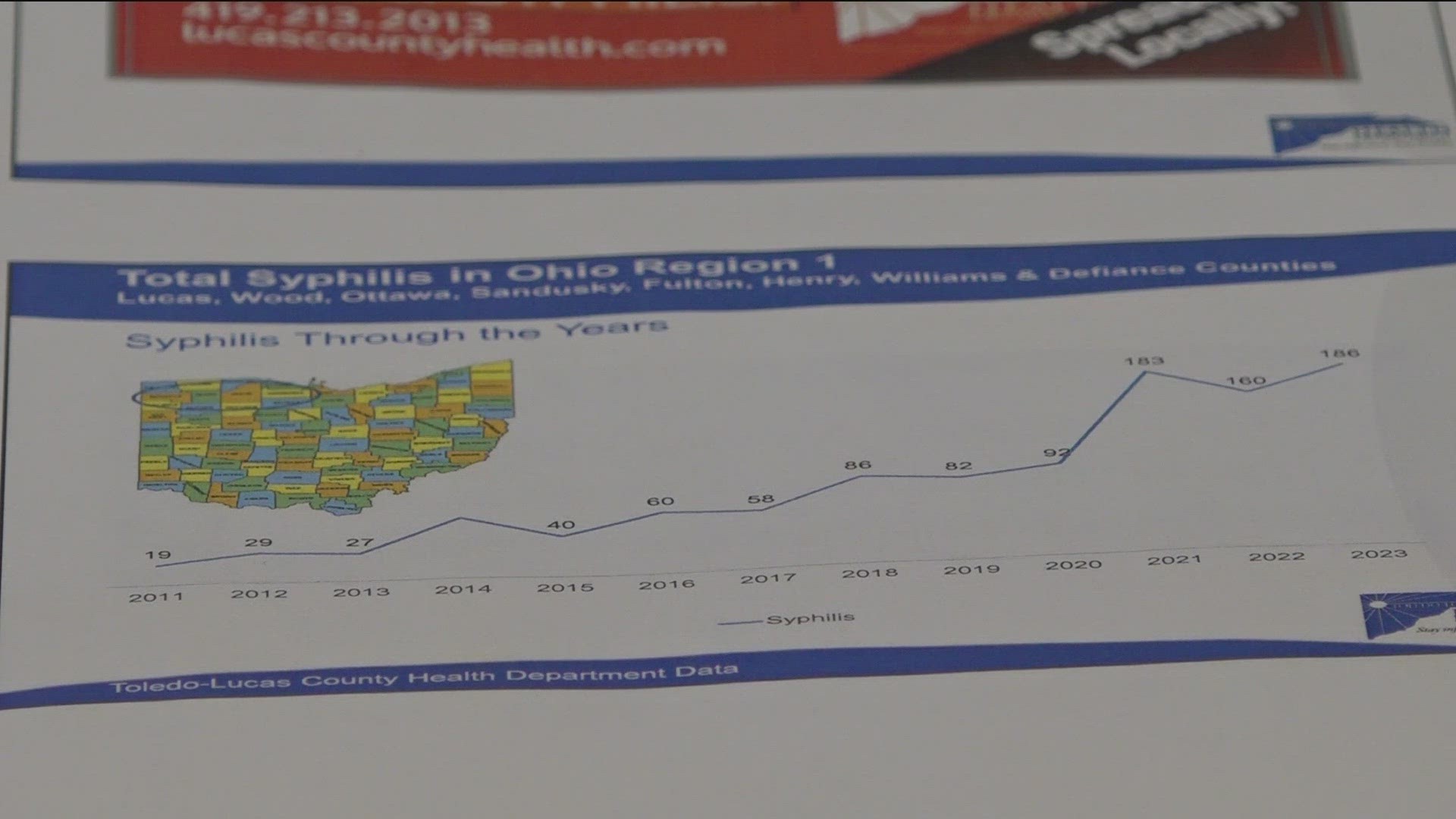LUCAS COUNTY, Ohio —
In 2023, Lucas County had the highest-ever reported number of syphilis cases at 186.
In 2019, there were only 82 reported cases.
According to the Toledo-Lucas County Health Department, these cases were in people ranging from ages 15 to 72. More than 75% of the cases were men.
This problem is not just in northwest Ohio, though. In the United States, there was an increase in syphilis cases of about 80% from 2018 to 2022.
"We've been heading into a national syphilis outbreak, which is very concerning," said Donna Fox, the HIV and STI prevention manager for TLCHD.
Fox said these are the highest reported numbers since the 1950s.
One reason for the significant increase is the COVID-19 pandemic. Fox said people weren't seeing medical professionals, getting tested or receiving treatment as frequently during that time.
People may also not know they have syphilis.
"Syphilis is called the great imitator," Fox said. "Syphilis can appear as a rash on your arm. You can get sores in body parts, but they can go away."
Since people may not know they have syphilis, Fox said getting tested is one of the most important things you can do. To be tested, you have to get blood taken.
Fox said when people get tested for sexually transmitted infections, they might think they were checked for everything. But unless the doctor took blood, they did not get tested for syphilis.
"The good thing about syphilis is that it's treatable," Fox said. "Syphilis is treated with a course of penicillin."
If it goes untreated, it can lead to long-term health impacts, like blindness, deafness or heart issues.
Fox said it's important for people who are pregnant to get tested as well. If someone is pregnant and has syphilis, the baby will be born with syphilis. This is called congenital syphilis, which can cause birth defects or lead to death.
The CDC recommends people get tested during the first trimester of pregnancy, but Fox suggests getting tested between 28 and 32 weeks. If they have syphilis, this gives doctors time to be able to treat it and the baby can be born healthy, without syphilis.
TLCHD offers testing and free protection.
"We really want people who are at risk to be tested for syphilis," Fox said. "That helps the individual. It also helps our community because then we're bringing it down. The more we can bring cases down, the faster we can identify them. It's just better for everyone that way."

